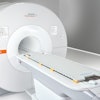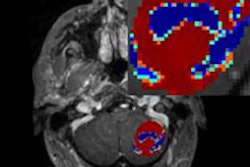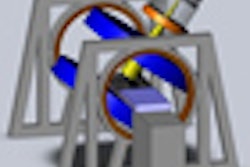Wednesday, November 28 | 11:50 a.m.-12:00 p.m. | SSK13-09 | Room S505AB
Diffusion-weighted MRI (DWI-MRI) enhances the diagnostic performance of conventional MRI in peritoneal metastasis detection and is comparable to FDG-PET/CT in this clinical application, according to this study from the University of Hong Kong.The scientific paper is the first prospective research directly comparing FDG-PET/CT and DWI, which demonstrate similar high diagnostic accuracies, according to the researchers.
Prospective subjects with peritoneal metastases were recruited for FDG-PET/CT and MRI, which were performed within four weeks of each other with no intervening therapy. Images were evaluated in separate sessions using DWI alone, conventional MRI alone, DWI with conventional MRI, and FDG-PET/CT for peritoneal dissemination in 16 anatomical sites.
The researchers analyzed a total of 96 sites in six subjects. DWI-MRI achieved greater sensitivity, specificity, accuracy, positive predictive value, and negative predictive value than DWI and MRI alone, and it was comparable to FDG-PET/CT in those categories.
"DWI increases the sensitivity of conventional MRI by combining the two MRI techniques in evaluating peritoneal dissemination," said lead study author Dr. Elaine Lee, a clinical assistant professor in the department of diagnostic radiology. "With DWI-MRI, the accuracy is similar to FDG-PET/CT, but it has the advantages of wider availability and lower cost, and it is radiation-free."
She added that DWI can be used concurrently with FDG-PET/CT or as an alternative imaging modality when PET/CT is unavailable. "Both the quantitative metrics can help our understanding in tumor biology and potentially be applied in future research in treatment innovations," Lee said.
The researchers plan to recruit more subjects for further study, concentrating on one disease cell type, such as ovarian carcinoma, with data that will be more homogeneous and target one specific disease.




















